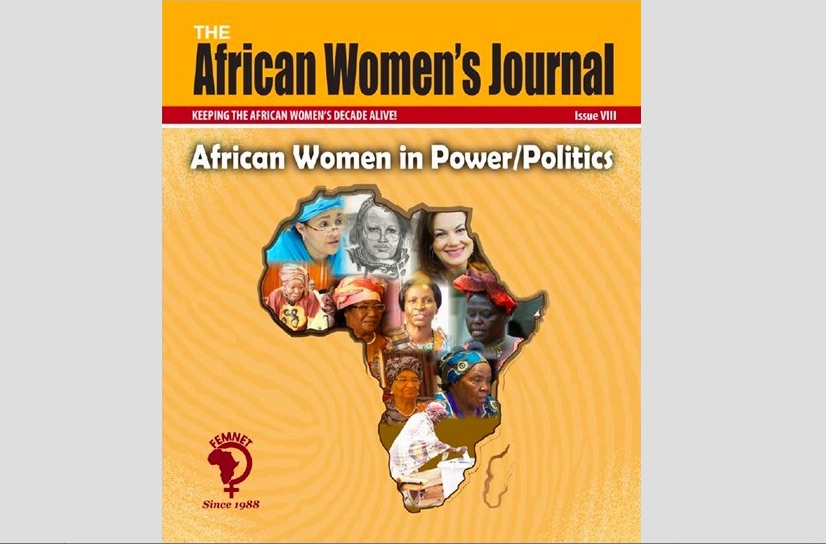. WOMEN’S EQUALITY .
an article by Nebila Abdulmelick, Head of Communications, FEMNET communications (abridged)
In this issue of the African Women’s Journal, dubbed African Women in Power/Politics, we seek to explore both the individual and collective experiences of past, aspiring or current women in power/politics. . .
 Click on photo to enlarge
Click on photo to enlargeAmina Mohammed shares her personally journey, from growing up in North-East Nigeria to her current position as special Advisor to Ban Ki Moon on Post-2015. She challenges us that it is not enough to simply have a seat at the table, but we must speak truth to the establishment and make that seat count for the countless who are not at the table. She reminds us that each of us must play our part, using our positions of power, small as they may be, to create a just and prosperous world where all people realize their rights and live with dignity and hope.
Annie Devenish takes a closer look at an eco- feminist and ultimately political movement; the Green Belt Movement, as well as the trailblazing woman at its forefront; Wangari Maathai. This case study provides an alternative model of leadership and participation; with women tapping into power through taking control of natural resources and articulating their struggles and concerns.
Bertha Rinjeu introduces us to a number of resilient women who find innovative ways around the threats, public shame and humiliation they face while on their political journeys. She touches on culture, patriarchy and strategies women employ to overcome obstacles placed in their paths to power.
Gavaza Maluleke looks at women fighting both a racist and sexist apartheid in South Africa – in particular focusing on the role of rural women, and the multiple ways in which women can participate and tap into power – both as individuals, and perhaps most importantly, as a collective.
Louisa Khabure delves into patriarchy, political global violence and the increasingly monetized nature of campaigns. She presents the nature and extent of challenges women face when seeking political leadership and examines this within the context of a broader political culture in Kenya. She also proposes actions to remedy the ills of the political landscape.
Aminatta L. R. Ngum presents the case of Pauline Nyiramasuhuko, who ironically held the position of Minister of Family Welfare and the Advancement of Women’s Affairs in Rwanda and who was the first and only woman tried and convicted for the crime of genocide as well as rape as an act of genocide by the International Criminal Tribunal for Rwanda.
Nimmo Elmi takes a look at the case of women in Somalia relegated to the private sphere despite their active engagement prior to the civil war. Through Serah Kahiu and Sara Longwe’s reflections of their own political journeys in Kenya and Zambia respectively, we come to understand that the personal is truly political.
Whether we engage at local, national, regional or global levels, we continue to wrestle with power, make our voices heard and bring about lasting change which can be felt by the coming generations. We’ve heard a few of the stories and journeys here in this issue, but of course there are countless others whose stories have neither been told nor heard.
A lutta continua.
Can the women of Africa lead the continent to peace?
This question pertains to the following articles:
South Sudanese women take the lead in local peace building
Women take ownership of Great Lakes peace efforts
Les Femmes de Mali S'engagent pour la Paix
The Women of Mali Engage for Peace
Meet the Tanzanian Woman Who Said No to a Forced Marriage
International Women´s Day: Interview With Leymah Gbowee (Liberia)
Announcing: Women of Congo Speak Out!
Samba-Panza’s election represents a bright future for African women in politics
Nobel Women wrap up delegation to eastern Congo
Towards the creation of a network of women for a culture of peace in Africa
Meet Carine Novi Safari, Democratic Republic of Congo
Esther Abimiku Ibanga, Founder and president of The Women Without Walls Initiative to receive the Niwano Peace Prize
African Women's Journal: African Women in Power/Politics